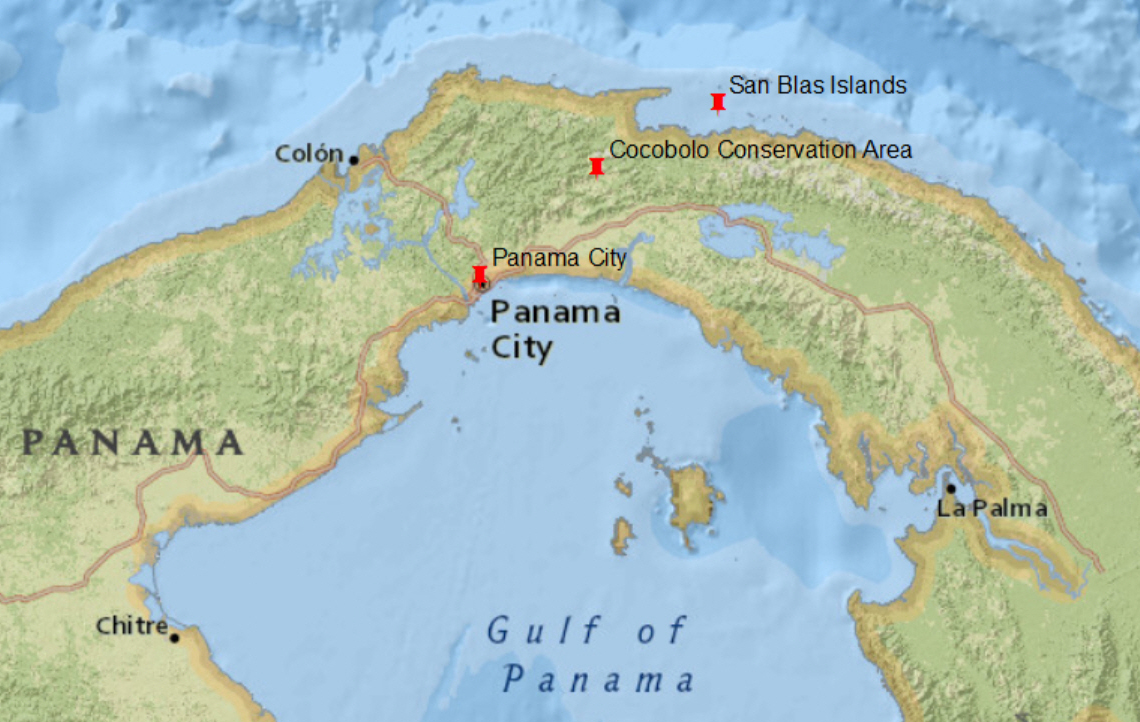Winter session course in natural resource conservation explores Panama

Virginia Tech students can travel between Panama’s Atlantic and Pacific coasts while assisting with wildlife inventories and learning about indigenous cultures, the impacts of climate change, and Panamanian history during a 12-day course over winter break.
Students earn up to three hours of college credit while also enjoying swimming, snorkeling, and rainforest work in the perpetual summer of the tropics.
The course, Issues in Natural Resource Conservation in Panama, runs Jan. 3 through 14, 2015, during Virginia Tech’s winter session offered between the fall and spring semesters. It is open to undergraduate and graduate students in all majors, with no prerequisites required.
“We’ll be experiencing three distinct environments,” said course instructor John McGee, associate professor of natural resources management in the College of Natural Resources and Environment. “We’ll start out in Panama City’s urban environment, where we’ll be learning about the history and economic importance of the Panama Canal.”
“Then we’ll head to the rain forest at Cocobolo Nature Reserve to work with local scientists and assist with wildlife inventories and GPS mapping,” he continued. “From there we travel to the autonomous region of the San Blas Islands to learn about the indigenous Kuna people and their culture.”
Students will gain knowledge about natural resource management and conservation issues, Latin American history and culture, agricultural practices in a developing country, and the impact of climate change on tropical environments and people. During the service learning component of the course at the Cocobolo field station, students will develop a basic competency in mist netting, wildlife camera systems, and wildlife and tree inventories.
Cocobolo Nature Reserve covers over 1,100 acres of rain forest and harbors endangered wildlife such as ocelots, great curassow birds, and harlequin frogs. It is accessed by a bridgeless trail that crosses the Mamoni River numerous times.
Although the course is offered through the Department of Forest Resources and Environmental Conservation, McGee expects it will draw participants from a range of majors.
“Students in geography, biology, engineering, agriculture, history, wildlife conservation, and other majors will find this winter session course valuable,” he said. “A good multidisciplinary team will enrich the experience.”
The basic cost of $2,820 includes round-trip airfare, in-country transportation, travel insurance, housing, and meals; tuition is extra. Partial payment is due upon acceptance in the course with the remainder due Oct. 10. For more information, email John McGee or call 540-231-2428.




